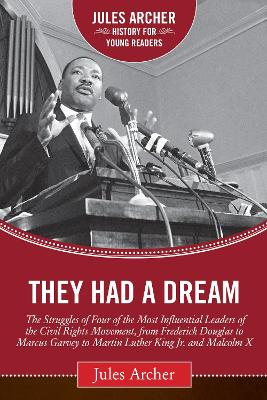Epoch Biographies
2 total works
An exploration of the women's movement, with biographies of Susan B. Anthony, Margaret Sanger, and Betty Friedan.
The majority of the civil rights movement in the United States occurred in three stages. The first stage began with the slaves in America fighting for their freedom. Frederick Douglass was a key player from the very beginning. Born a slave, Douglass escaped and went on to become one of the most respected abolitionist leaders.
After the Civil War, freed slaves fought to overcome the still-prevailing prejudice and persecution. During this phase, Marcus Garvey led the Back to Africa movement, promoting Black Nationalism and black pride among the newly freed people.
And in the 1960s, a strong civil rights movement branched in two different directions. The first was headed by Reverend Martin Luther King Jr., who organized a powerful nonviolent civil disobedience movement to win equal rights through integration. Following a very different path, Malcolm X sought equal rights for blacks through violent confrontation and racial separation.
Together, these four men shaped the American civil rights movement. Racism is still a very relevant problem in our country today, and to better understand where we are now and how to make progress in the future, we must first understand where we’ve come from.
After the Civil War, freed slaves fought to overcome the still-prevailing prejudice and persecution. During this phase, Marcus Garvey led the Back to Africa movement, promoting Black Nationalism and black pride among the newly freed people.
And in the 1960s, a strong civil rights movement branched in two different directions. The first was headed by Reverend Martin Luther King Jr., who organized a powerful nonviolent civil disobedience movement to win equal rights through integration. Following a very different path, Malcolm X sought equal rights for blacks through violent confrontation and racial separation.
Together, these four men shaped the American civil rights movement. Racism is still a very relevant problem in our country today, and to better understand where we are now and how to make progress in the future, we must first understand where we’ve come from.

